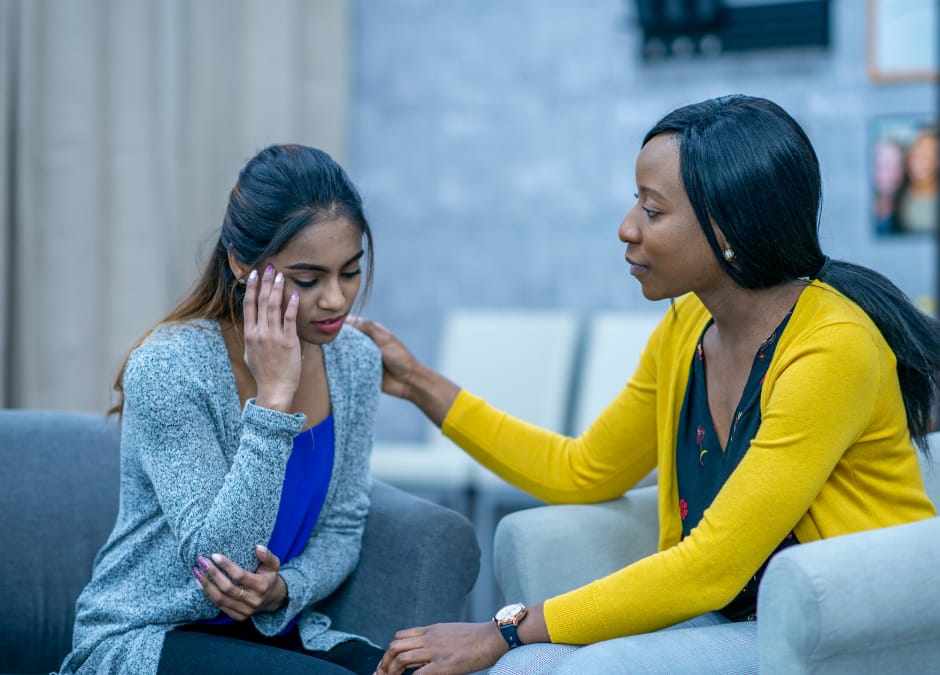- As of April 2021, more than three million people worldwide have died from COVID-19
- Americans have suffered through the largest economic calamity since the Great Depression
- People in the US have endured civil unrest that has not been seen since the 1960s
- We’ve seen hurricanes, wildfires, winter storms, blackouts, floods, and untold numbers of climate catastrophes
- We’ve dealt with bombings, mass shootings, police killings, and political war and crisis
- We’ve endured trauma, drama, conflict, stress, and pain in homes and families due to the isolation, separation, and forced shelter-in-place orders
- Untold millions have lost their jobs or businesses, taken on multiple jobs, had to learn new jobs, and have become teachers, peers, and support systems for everyone in their families
- Countless people have endured parenting problems, mental health problems, spiritual crises, financial dread, physical death, and devastating illnesses
In short, new challenges, crises and fears have gripped the entire world. Suffering has been widespread and unrelenting.
Given all that, my questions are:
- How much credit do we each deserve for even surviving all these catastrophes?
- How incredibly strong are we as a species?
- What amazing gifts have we been given by going through this pandemic?
- Who are you now (as a person and as a parent) since the pandemic began?
- What will you choose to do with your life after feeling, experiencing, and witnessing the alternative?
- Does it really matter that the dishes are left in the sink when people you know and love are suffering, ill and in some cases dying?
- Does it really matter that the bed has not been made when you don’t know when your next check will come in or if your child will have enough to eat tomorrow?
- Does it really matter that your teen rolled their eyes at you, dropped F bombs, screamed, and said hateful things to you when they are not even sure if they will get a full education or be ready for adulthood?
The first step to overcoming, recouping, bouncing back, and knowing where to start to rebuild back better is to honor, understand, acknowledge, and give space for healing of what has happened, what has been lost, what has been grieved, and where many of us are still in pain and fear of what might happen next.
As a clinical psychologist and family executive coach who works with teens and parents of teens, my tools are admittedly ass-backwards, counter-intuitive, and un-common common sense. These times call for new methods, different strategies, novel perspectives of life, and even unusual behaviors as we face uncertain and abnormal situations. To keep doing things the same we have always done them would be insane! The world has changed too much to think we can go back to “normal.” When we keep doing the same things over and over that hurt us or that no longer work—and then blame someone else for hurting us—we feel powerless, hopeless, desperate, and even angry. The way out of this is to look within, to look around and identify what we can control, to let go of what we can’t control, and to get curious about what is right in front of us.
Below are three concrete tools I’ve used with clients and taught people for years to help them begin to feel empowered with teenagers in crisis, to get their personal power back in their intimate relationships that appear to be falling apart, and to get clarity on next steps out of pain, upset, trauma, drama, hurt, grief, terror, and powerlessness. Apply these tools if you and your teen are in crisis and see how healing, helpful, and even transformative they can be for both of you.
- Expectations – Compare and Despair – When a child believes they must meet an expectation that feels absolutely unattainable, they quit, feeling paralyzed, like they’ve failed before they even take the first step. When we as parents put expectations on our children that we have not done, cannot do, or do not wish to do, how in the world can we expect our children to believe they can do these things? If we have not mastered our mental or emotional states, our physical body, our financial resources, our educational know-how, our inner confidence, our courage, etc., and we try to act like the master, the role model, or the authority figure to our child, how can we expect our child to act like we want them to?
- How to Be Selfish in Service of Your Child – What does that mean? When you take care of yourself first, you are being in service of your child. When you take care of yourself, you become a role model, a self-sovereign and complete human being. It is in your selfish self-care that you are filled with energy, love, and abundance to give the overflow to your child, to give what feels delicious to give, and to give only what you choose to give from love. When you are depleted, your child internalizes that they are not enough, too much, guilty for hurting or rejecting you. They become a parentified adult to protect and save you from acting out childish behavior, and later they also choose to act childish because they never experienced being cared for as an innocent child.
- Focus on What You Want and Totally Ignore What You Don’t Want – This is harder to put into practice than what it may seem on the surface. Most of the requests, demands, and statements I hear from parents aimed at their children and from children aimed at their parents are in the form of the negative: “stop,” “don’t,” “quit it,” “you always…,” “you never…,” etc. And children, especially teenagers, hear all requests as demands with the threat of punishment for non-compliance. This parent/child negative communication pattern sets up unconscious defiance, rebellion, lying, blaming, shaming, and sometimes even physical altercations.
How do you think it feels to see adults everywhere in total mayhem during this time? Our job, each and every one of us, is to “master our own porch,” our own emotional states, our own self-sovereignty first. There is a reason the airline flight attendants tell us to put our own oxygen mask on first, before we do this for our child. Choosing to be a martyr creates more parentless children and more dependent non-functioning adults. Set expectations you know you can attain. We all want to be successful and win. We make the rules for ourselves and our children. Are you and your children winning? If not, change the rules! Set new expectations to live into that you want to experience with yourself and your family.
We cannot give what we don’t have to give. We can only breathe out as much as we have taken in. To break the inter-generational pattern of co-dependence, we must grieve the fact we never were given what our parents were never given and what was never given to us. We have nothing to give our children until we give it to ourselves and have an abundance to give back. This may sound like doom and gloom. My invitation is to hear it as permission to give yourself what you need so you don’t need your child to give it to you.
For a minute, focus as hard as you can on not thinking about a huge pink polka-dotted elephant in the middle of the room right now. With all your might, don’t even begin to think about that elephant. If you started thinking of it, stop thinking about the elephant. You can’t do it, can you? Why? Because our brains aren’t built to work this way, to not think about something it has already been told about.
One way around these destructive patterns is to ask a question about what you and your child want to live into post-pandemic? What would life ideally look like when we no longer have to shelter in place. What would you love to experience next? This creates a worm-hole question into everyone’s brain to start looking for answers. Be conscious of what you ask for. Be careful what you state and affirm with your words. You absolutely get to be right. Would you prefer to be right about all the stories you have about yourself, your children, the world, the pandemic, etc.? Or would you rather get curious about what you want to consciously create and live into next?
We get to decide, define, and determine the outcome of this unprecedented and uncertain state of the world. My belief, my story, and my intention are that I will never be the same. I have honestly learned more in the last few years than I have learned in all my previous years. I love who I am becoming and what I’m seeing around me with my friends, family, and clients. I feel so grateful that I have survived this pandemic and can’t wait for what happens next! How about you? What’s your Story? For more information, go to https://DrBeth.com/Freestuff
Stay tuned for Part Two of this article in which Dr. Beth Halbert shares what happened to her after she began reading this article to her parents. She was initially triggered, but then quickly got back into her power, walking her talk with the concepts she shares in this article.
Author Bio
Dr. Beth Halbert, a.k.a. DrBeth, known as “America’s Teenologist,” has a 30+ year history working as a corporate trainer, keynote speaker, executive coach, educator, and consultant for family-owned businesses and Fortune 500 companies. She has a thriving private clinical psychology practice working with teens and parents of teens, offers a variety of courses, programs, workshops and services, and delivers highly educational and extremely entertaining keynote presentations.
As a licensed child psychologist and expert with teens, parents, teachers, health professionals, and others, DrBeth has worked with thousands of families and “first responders” to create stronger parent-teen bonds. She takes a unique approach to helping families overcome the difficulties of adolescence, combining proven clinical practices with warmth, playfulness, self-expression, love, and compassion. She knows how teens think and act and gets them to talk about their emotions and behaviors. She also knows strong-willed adults and gets them to accept themselves exactly as they are and accept their children and others exactly as they are.
In short, DrBeth fully understands human behavior, relational dynamics and “inner family” dynamics (including our inner three-year-old’s, our inner seven-year-old’s, and our inner teens). She works closely and compassionately with people of all ages, supporting them to appreciate themselves, engage in positive dialogue with others, and develop healthy, connected, loving relationships in especially challenging, dysfunctional situations.
DrBeth has a BA in Psychology from Baylor University, a MEd in Human Resource Development from Vanderbilt University, and a PsyD in Clinical Psychology from the California Institute of Integral Studies. She is the author of the award-winning book Embracing Defiance: Helping Your Child Find Their Unique Voice While Keeping Your Sanity, which helps parents understand and appreciate the value of healthy defiance. She is also a singer, songwriter and producer of multiple children-and-parent music CDs.

